THE WOMEN BEHIND LEADING NONPROFITS: 16 QUESTIONS WITH JENNIFER WINDSOR

This interview series, conducted by MBA@UNC, features seven women leading nonprofits across a variety of fields. Despite spearheading organizations that are doing tremendous good, these female entrepreneurs are not traditionally recognized for the incredibly hard work they do every day.
The nonprofit sector is female-dominated. A 2012 “Current State of Women in Leadership” report from the Women’s College of the University of Denver found that women make up 75 percent of the nonprofit workforce in contrast to the business world where women account for 49 percent of the workforce. However, men still hold 79 percent of the CEO positions for nonprofits with $25 million in assets or more. And although the gender gap among nonprofit CEOs is narrowing, less than one in five charities with budgets of $50 million or more are run by women. These statistics may seem discouraging, but they have not prevented all women from rising in the nonprofit ranks nor inhibited them from starting their own nonprofits.
For the second installment of this series, we interviewed Jennifer Windsor, the CEO of Women for Women International. This nonprofit works directly with women who are isolated and displaced, often struggling with poverty amid the violence and insecurity that exists in post-war regions of the world. Women for Women International provides women with training that teaches them skills and connects them to resources so they can earn and save money, improve their health and well-being, influence decisions in their home and community, and connect to networks for support. By utilizing skills, knowledge, and resources, they are able to create sustainable change for themselves, their families, and communities.
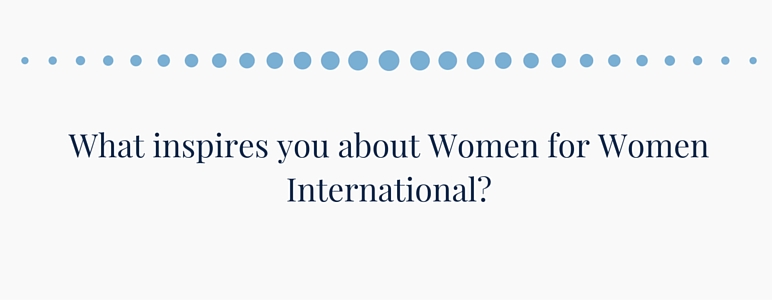
Many people talk about the importance of bringing women to the table, but there are very few organizations working with women at the grassroots level and helping prepare them to participate in these discussions and take on those decision-making roles. What I love about Women for Women International is that we’re helping women to develop a greater awareness of their own power and what they can do to improve their own lives, as well as their families and communities.
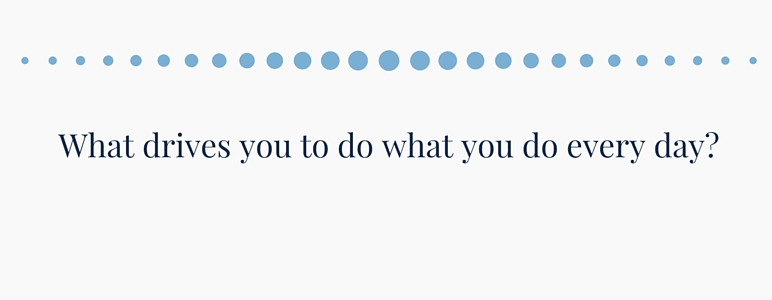
In my work, I see what the headlines rarely cover: women who are not just victims of violence, but survivors who are strong enough to rebuild their families and communities after conflict. I think when people hear about war, they often think that nothing can be done. I believe we need to push back against that idea because each of us can do something to help. For me, the greatest source of hope and inspiration are the women we serve in these countries affected by war and conflict.
Earlier this year, we met a 17-year-old Syrian refugee named Kinda, who lives in a camp in northern Iraq. Like so many girls in desperate circumstances, Kinda married young, looking for stability and protection. But her husband was abusive, hurting her so badly that she miscarried. He then abandoned her. Kinda reminds me why we cannot give up, because even after all she went through, she was determined to move forward. She took classes in advanced business skills, and today she runs a successful used clothing store in the camp. She can stand on her own and support herself and her mother. Kinda and thousands of other women like her prove that real change is possible, and they inspire me to do all I can to help them.
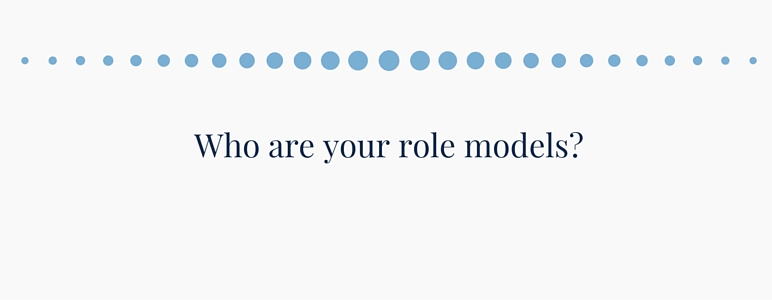
Eleanor Roosevelt definitely inspires me. In the face of incredibly stressful circumstances, she recognized she had a platform and an opportunity to speak and to use her power and influence to bring about real change in the world. I think that every woman, no matter where she is, has a platform to take a stand in her own life, and the opportunity to make decisions that can positively impact others. That’s why the women in our programs also inspire me. Once they recognize their power and their voice, they are unstoppable.
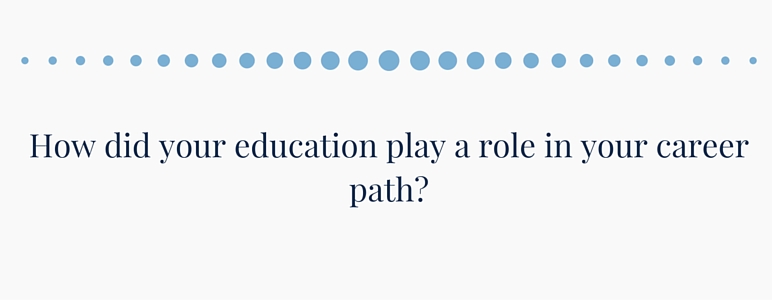
It played a critical role. After taking courses in Middle Eastern history and comparative politics in college, I was determined to find an opportunity to travel abroad. The first time I ever left the United States was to live and study in Cairo, Egypt, in 1985. It was life-changing for me. I learned so much from my Egyptian friends about their perspectives; I traveled throughout the country and saw how ordinary Egyptians were living, and the challenges they faced in their daily lives. I wanted to do what I could to bring solutions to those challenges. Every human being deserves to live a life of dignity. That is what has inspired my entire career.
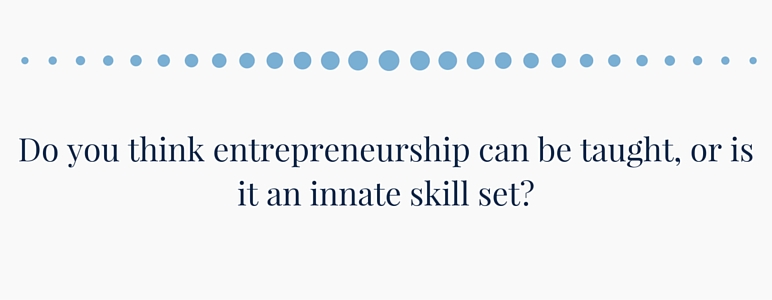
In my work, I see that nearly all women have some entrepreneurial spirit. In the instability of war and its aftermath, women find ways to support their children and families when formal economies have collapsed. More than four out of five of the women we serve say they are self-employed, meaning they are using their own skills to make it as an entrepreneur.
I think education plays a transformative role in giving people—especially the women we serve—the confidence to take risks and become entrepreneurs. In the communities where we work, entrepreneurship is critical as there are few if any formal jobs available to women. In our classes, women learn numeracy, a vocational skill, and basic business skills such as bookkeeping that give them the tools they need to understand how markets work. They take those skills and their newfound confidence and start their own businesses, or come together to form cooperatives or associations. They tell us their daily earnings increase four-fold from the time they start our program to when they graduate. So I believe anyone can make it as an entrepreneur, and that education is critical to helping them succeed.
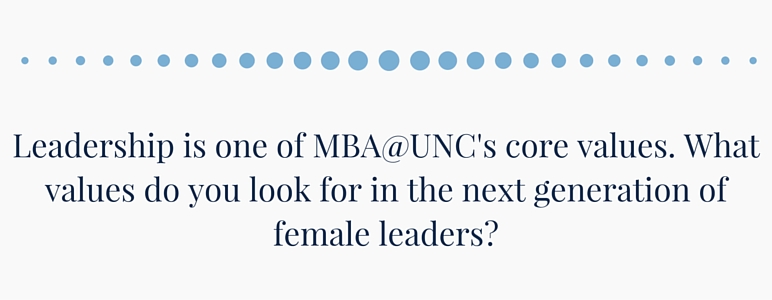
To me, leadership is first about being willing to listen and learn, about identifying the strengths and passion of your team, and continuing to inspire them to believe in themselves and the work you’re doing together. But I also believe that leadership’s about creating an environment that’s fun. I love to laugh, and think it’s so important to enjoy what you do and who you’re with every day.
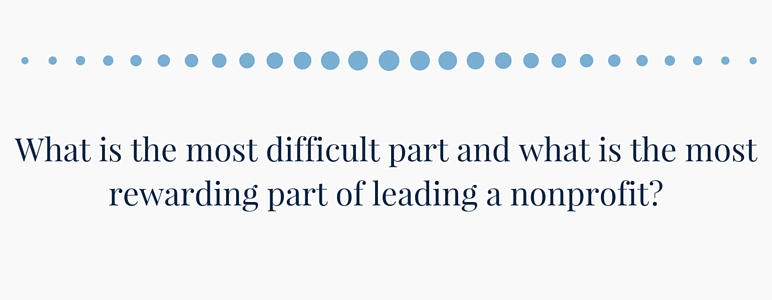
The best part of my work is knowing that we are having a direct and positive impact on the lives of women all over the world. Hearing their stories of what they have overcome and what they dream of achieving is inspiring.
We are continually enrolling women in our program, but our ability to do this depends on the generosity of our supporters. Knowing that our ability to raise funds has a direct impact on our programs and the number of women who are able to access these critical trainings is a continual motivation to find new ways to grow our supporter base.
Within the past few years, it has been increasingly difficult to witness the rise of violence and attacks on women and girls around the world—from ISIS in Syria and Iraq to Boko Haram in Nigeria and others. For the women we serve, it places even greater obstacles in their way, and can disrupt their entire lives. It can be incredibly challenging for our country office staff too, who live in the same communities and experience the same security concerns. Ensuring the safety of our staff and the women in our programs is our top priority.
W
Because we work in countries that are going through conflict or struggling to recover from war, we tend to hear a lot of terrible news from the places where we work. Our job and our challenge is to inspire hope and to remind people that we cannot give up, and that their support can have a direct, positive impact. The headlines don’t tell the full story, and in fact, there are many inspiring women working to make these countries and communities better. We share their stories on our website, on social media, wherever we can to remind people that the situation is not hopeless.
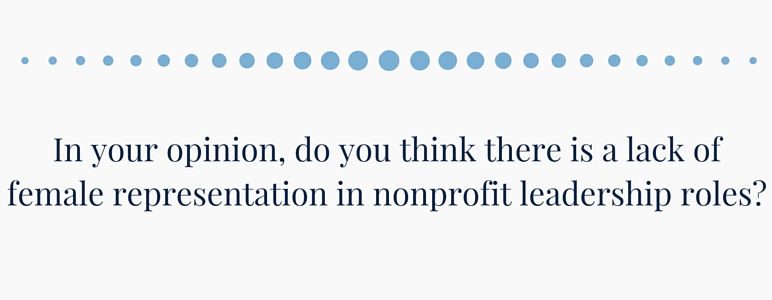
Around the world, women certainly face more obstacles than men when it comes to starting a business, or even earning money. There are laws in 155 countries that impede women’s economic opportunities, according to a recent report from the World Bank. Even in places where the laws support women’s equality and economic empowerment, we know that women are often prevented from accessing those rights by local patriarchal norms and practices. For example, women in the eastern Democratic Republic of the Congo often find it impossible to own their own land. The DRC’s laws give them that right, but they are not enforced locally, with detrimental consequences for women and their families. That’s why we believe it is so important not only to educate women about their rights, but also to give them the tools and support network to be able to stand up for their rights in their families and communities.
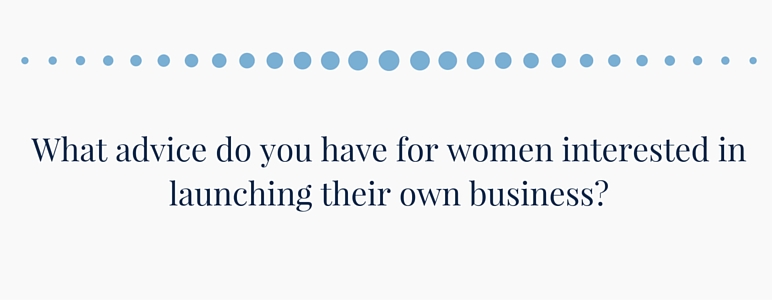
Go for it! Surround yourself with people who will support you and encourage you to keep going. Be prepared to work harder than you ever thought possible but always remember what inspired you to start in the first place.
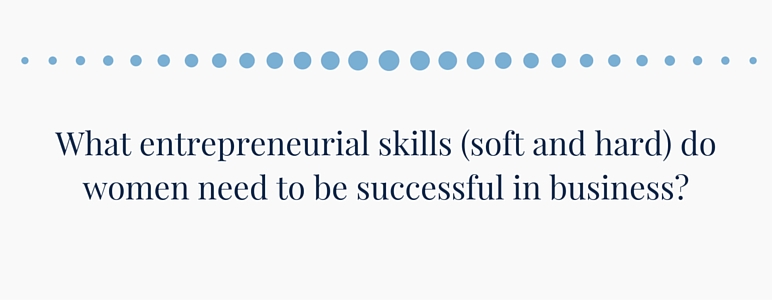
No matter what field you’re working in, being an entrepreneur requires resilience, determination, and a strong support network. That’s what we try to help women foster through our programs.
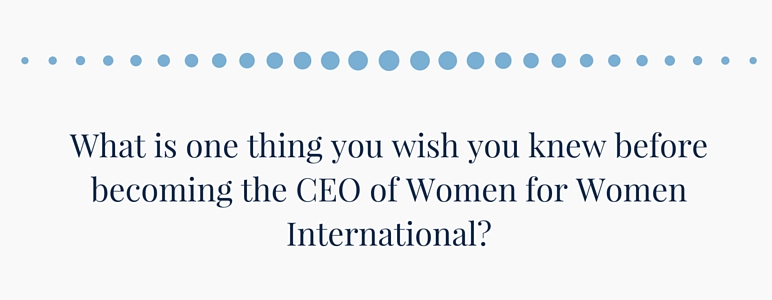
I wish I had learned more business skills. Running a nonprofit organization requires knowledge of financial and management skills, and the ability to think strategically. Most people that go into the nonprofit world are drawn to the programmatic work and because they are passionate about the mission. To lead a nonprofit effectively, you have to be able to combine the “hard” business skills with passion and purpose.
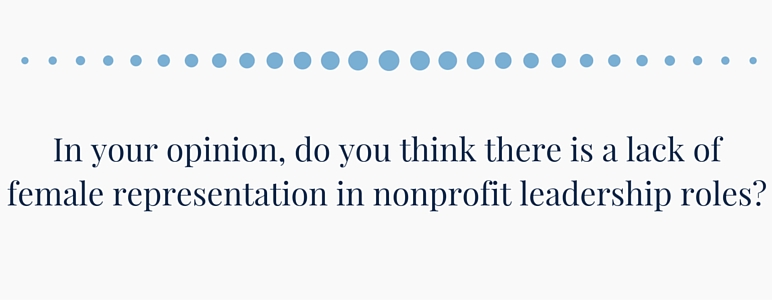
It’s not an opinion. It’s a fact that women are not equally represented in nonprofit leadership. Forty-three percent of the membership of nonprofit boards are women, and for nonprofits with incomes of $25 million or more, only 33 percent of the membership of the board are women. The same pattern holds for women CEOs at nonprofits—overall in the United States, women lead 43 percent of nonprofit organizations, but only 18 percent of nonprofit organizations with budgets of more than $50 million per year. We’ve made progress, but there’s still a long way to go before we can say women are equally represented in leadership.
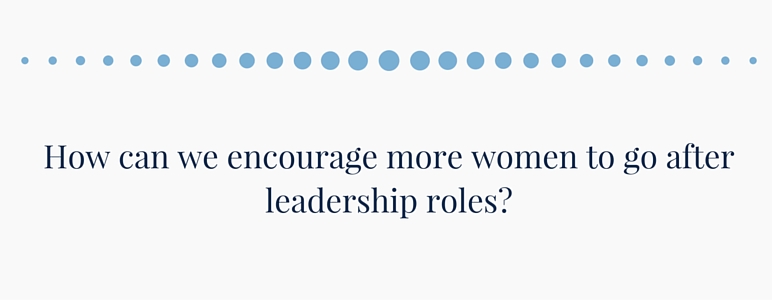
In the United States, there is still a lot of work that needs to be done to make sure women have the same opportunities as men to take on leadership roles. This includes establishing work-life policies that actually work for families, and changing the conversation and outdated expectations that assume women are the default parents and caregivers.
It’s also incumbent on those of us who have reached senior roles to continue to provide mentorship and professional development opportunities to women who are not as far along in their careers—and to encourage our male colleagues to do the same. It’s going to take a lot longer for women to hold 50 percent of the leadership positions if only 50 percent of the population is working on this issue.
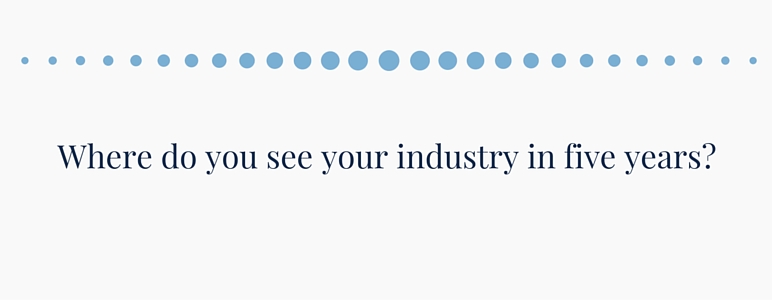
There’s a growing demand from foundations and organizations investing in this kind of work to demonstrate impact through monitoring, research, and evaluation. In the conflict-affected communities where we work, ongoing instability can present incredible challenges to doing this well and consistently, but accountability and transparency are increasingly important in our work.
I also think that we’re seeing a growing number of leaders from the countries where we work starting grass-roots initiatives and nonprofits of their own to address local needs. I expect we’ll see these efforts continue to grow in the coming years, and see this as an exciting opportunity for nonprofits to collaborate in the future.
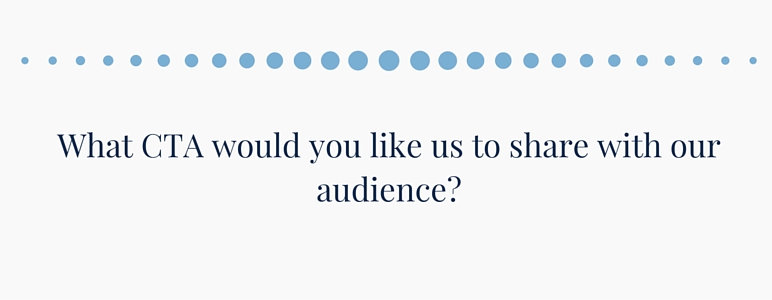
During the holidays, our Gifts that Give Back campaign is a great opportunity to spread the goodwill of the season and to give a gift that will help a woman in need rebuild her life.


